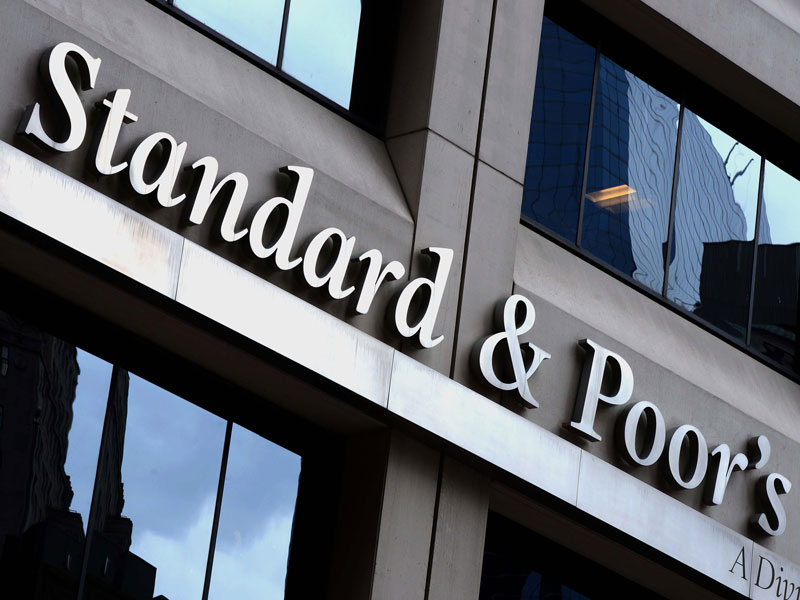The rating agency, Standard and Poor’s Global Ratings (S&P), has maintained the country’s creditworthiness score at ‘B’ negative and ‘B’ over its solid growth prospects in the short to medium term.
The agency also left the outlook at stable, saying that it was convinced that measures put in place to arrest the debt growth would yield the necessary results.
In a statement issued last Friday, S&P, however, warned that it would not hesitate to revise the current rating score in the next six to 12 months should the situation change.
Implications
The affirmation of the country’s long and short-term foreign and local currency sovereign ratings at ‘B’ and ‘B’, respectively, means that Ghana’s debt is classified as highly speculative in the eyes of global investors.
S&P is now the only agency among the top three to have maintained the country’s creditworthiness score this year.
Earlier in January and February, Fitch Ratings and Moody’s Investor Services downgraded the country’s score to B negative from B with a negative outlook and B to Caa1 with a stable outlook, respectively.
Global occurrence
Experts say the downgrades are a global phenomenon occasioned by the damage caused by the COVID-19 pandemic on economies.
So far, 48 countries have been downgraded globally although only three countries in Africa — Nigeria, Tunisia and Mozambique — share the same ranking on the scale used by the rating agencies.
The downgrades followed a strong build-up in debts and the posting of large fiscal deficits as governments across the world step up borrowing and spending to help contain the effects of the COVID-19 pandemic.
S&P basis
S&P said in its statement that: “Our ratings are supported by Ghana’s solid growth prospects – with real GDP growth projected to average close to five percent per year over 2022 to 2025 – as well as its relatively transparent and responsive political institutions and largely market-oriented economy.
Since 2005, per capita GDP in dollar terms has more than doubled, reaching a still-low $2,373 in 2021, with growth per person over the past 15 years averaging 3.5 percent.”
“Ghana is one of the most open economies in Africa, with exports equal to one-third of GDP.
The largest two sectors, mining, and hydrocarbons account for about 70 percent of all exports.”
“Because of Ghana’s relatively diversified commodity base of gold, oil, and cocoa, its terms of trade have remained fairly stable, with a 10-year average standard deviation of 3.4 percent.
We expect these offsetting trends could continue over the medium term,” the agency said.
On the statement outlook, S&P said it balanced the country’s high government debt levels and an elevated interest burden against its expectation that the government debt to GDP would return to a gradual downward trend as growth recovered and fiscal consolidation proceeded.
Constraints Beyond the positives, S&P said its ratings on the country remained constrained by weak public finances, it expected the recent commitments by the government to impose a 20 percent cut to discretionary spending to reduce expenditure by over one percent of GDP during 2022.
Context
Some analysts have established that 48 countries had their ratings cut by at least one credit ratings agency following the COVID-19 outbreak.
Fitch is the most active with 45 downgrades or 26 percent of the sovereigns it rates. S&P is next with 37 cuts or 18 percent of its sovereign ratings.
Moody’s lowered 33, or 20 percent of the countries it assigns sovereign ratings to.
According to the International Monetary Fund, COVID-19 has seen debt in developed economies collectively surge 20 percentage points to 124 percent of GDP.
Across emerging markets, it has gone up nine percentage points to a record 61 percent and is expected to hit 70 percent of GDP.
Overall, poorer countries have borne the brunt of cuts.
Fitch delivered the most cuts in most places although S&P led in Sub- Saharan Africa where it cut half the countries it rates.
By: Isaac Clottey












